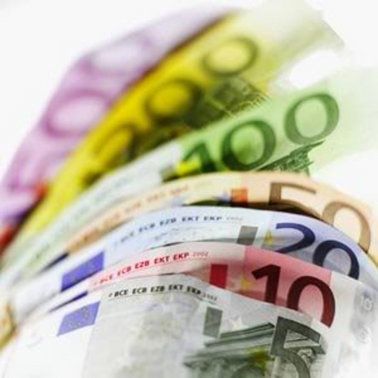
THE TELEGRAPH: The euro soared on Monday morning as investors reacted with initial relief at the €750bn plan to defend the single currency and European Monetary Union from potential collapse.
After a frantic weekend of negotiations in Brussels, the Eurozone's 16 finance ministers released a package that pledges: €440bn in loans or guarantees from Eurozone countries, €60bn from the European Union's Budget and up to €250bn from the International Monetary Fund.
The EU's monetary affairs commissioner, Olli Rehn, said the agreement "proves that we shall defend the euro whatever it takes."
In a statement, the Finance Ministers said: "We are facing such exceptional circumstances today and the mechanism and the mechanism will stay in place as long as needed to safeguard financial stability," the ministers said in a statement.
The radical action, which will see the European Central Bank buy the debt of the most troubled countries, likely to include Portugal, Greece and Spain, comes as European Monetary Union faces the gravest threat in its short history. Fears that the debt crisis that has engulfed Greece would spread throughout southern Europe reached a crescendo last week. Investors welcomed the package. >>> | Monday, May 10, 2010
LE FIGARO: Euphorie sur les Bourses européennes : Le plan d'aide à la zone euro rassure les marchés. A Paris, le CAC 40 s'envole de près de 7%. Les bancaires grimpent sur des progressions à deux chiffres. >>> Par Marine Rabreau | Lundi 10 Mai 2010
THE TELEGRAPH: FTSE 100 soars as €750bn rescue package for Europe sparks global rally: The FTSE 100 joined in a stock market rally across Europe on Monday, as investors reacted with initial relief at the €750bn (£655bn) plan to defend the single currency from potential collapse. >>> | Monday, May 10, 2010
THE WALL STREET JOURNAL: European Markets Surge: European stocks and the euro surged Monday, as investors took heart from a €750 billion ($954.83 billion) rescue package intended to stabilize the single currency and prevent the Greek debt crisis from spreading to other member countries. >>> Michele Maatouk and Ishaq Siddiqi | Monday, May 10, 2010